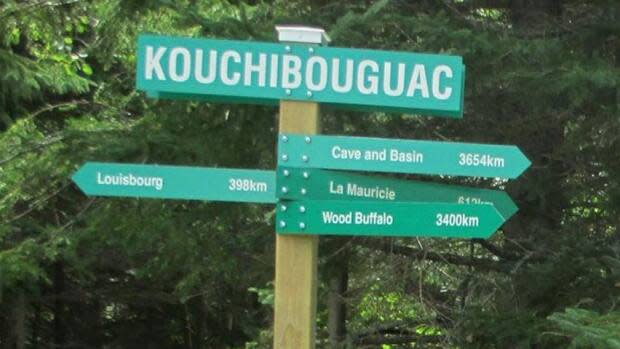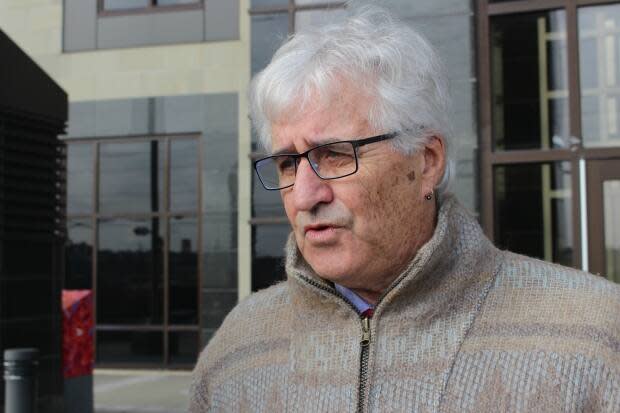Appeal court considers Jackie Vautour case
New Brunswick's appeal court will rule on another case brought by Jackie Vautour in his decades-long challenge to the establishment of Kouchibouguac National Park.
A panel of three judges heard arguments from Vautour's lawyer and lawyers for the provincial and federal governments Thursday morning.
Michael Swinwood, Vautour's lawyer, argued a lower court judge wrongly decided the case.
The federal and provincial government lawyers argued Vautour's case was an abuse of the court system by attempting to retry an issue already settled in an earlier case involving Vautour.
Chief Justice Marc Richard, Justice Bradley Green and Justice Lucie LaVigne will issue a written ruling sometime in the future.
Vautour, 91, has engaged in a series of legal battles related to the creation of the park in eastern New Brunswick along the Northumberland Strait. Between 1969-71, the province expropriated land from residents and transferred it to the federal government for the park.
Vautour returned to the park where he continues to live in a small building.

Vautour unsuccessfully argued in a previous case that as a Métis person, he had the right to fish for food in the area of Kouchibouguac. The appeal court ruled against him in that case, and the Supreme Court of Canada declined to hear the case, upholding the appeal court decision.
In 2017, Vautour filed a lawsuit saying he represents more than 100 people claiming to be Metis Acadian Mi'kmaq seeking rights and title to the park area under the Canadian constitution.
The province and the federal government asked a lower court judge last year to remove Vautour and the others from the case, saying the issue of whether there is a historic Métis community in the area of Kouchibouguac was decided in the previous case. The lawyers argued the latest case was an abuse of process.

It was during a September 2019 hearing about that when Court of Queen's Bench Justice Jean-Paul Ouellette was questioning Swinwood about whether the issue had already been settled.
"Mr. Vautour doesn't sound like an Aboriginal," Ouellette then said, according to a transcript of the Sept. 25 hearing.
"Doesn't sound like an Aboriginal?" Swinwood replied.
"Like, it doesn't sound like he has any rights and that was determined in the — he — he — is not. There's no such community in New Brunswick."
Swinwood called for the judge to recuse himself, arguing the comments showed he was bias and had predetermined the outcome of the case.
Ouellette in January declined to recuse himself, saying he was just challenging Swinwood's position so he would refine his argument and had not made up his mind.
Later, Ouellette ruled in favour of the federal and provincial governments. Vautour appealed, leading to Thursday's hearing.
Justice Marc Richard repeatedly questioned Swinwood to better explain how Ouellette's comments showed bias.
"That statement is a bold statement," Swinwood said to Richard. "That's not probing … it's a straight-up statement."
Swinwood said that after Ouellette didn't recuse himself, Ouellette ruled in favour of the government without properly examining the issues the case raises.
"This case needs to be resolved on evidence, not on summarily dismissing the matter," Swinwood said.
The lawyers representing the two levels of government reiterated the argument Swinwood was trying to get the court to reopen a decided issue about Indigenous status.
"I would suggest he's trying to undermine the entire integrity of the judicial process," Rachelle Standing, a lawyer representing the province, said.
"Is it the same question, or is it not?" Kathleen McManus, a lawyer for the federal government, said of the question they say the appeal court will need to decide.
The judges will issue a written ruling at some point in the future.


